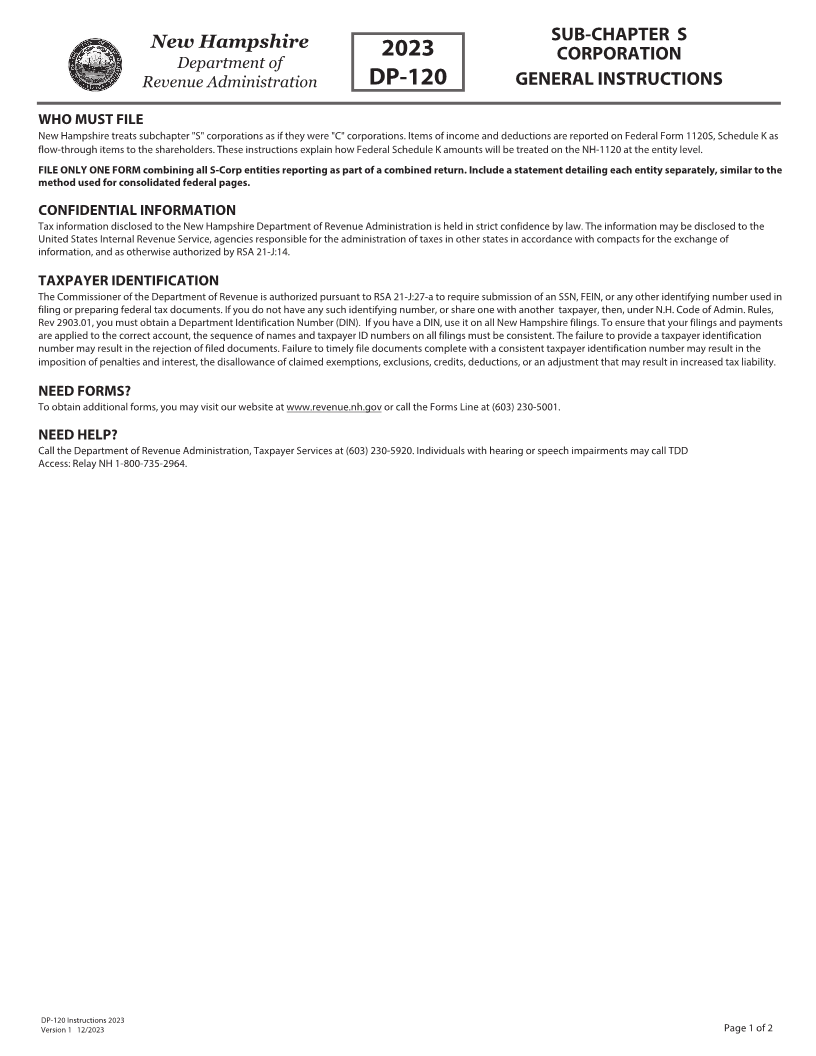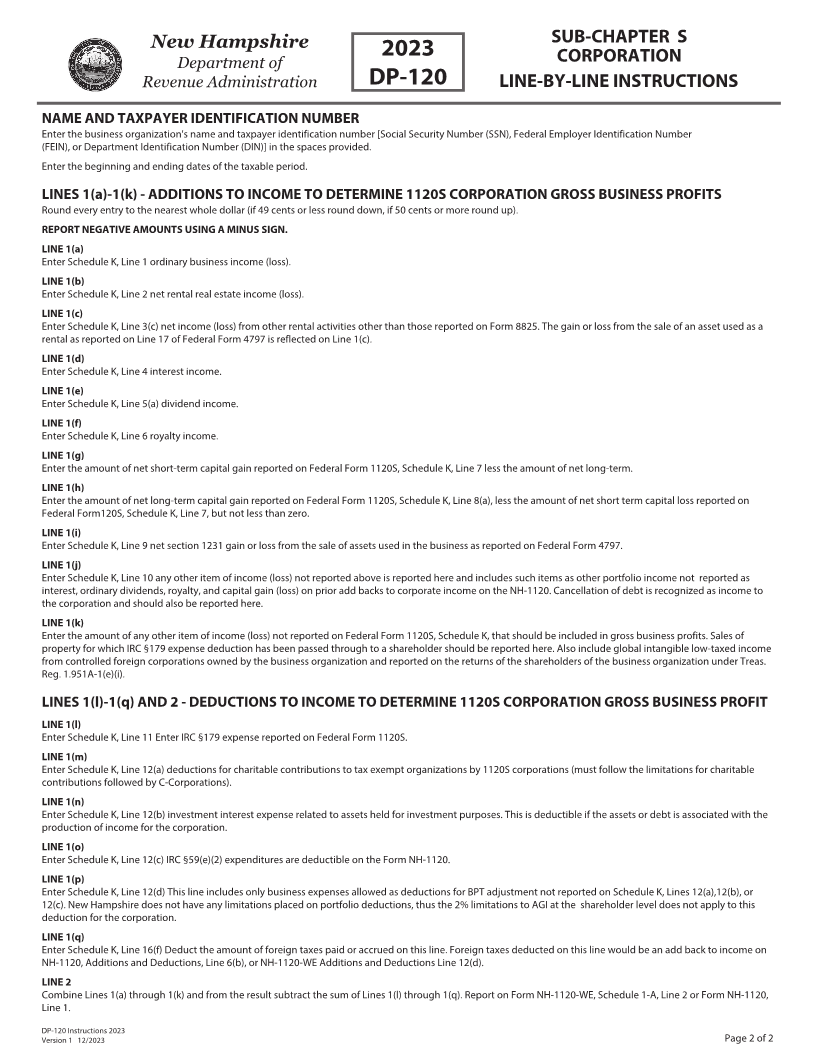
Enlarge image
SUB-CHAPTER S
1HZ +DPSVKLUH
2023 CORPORATION
'HSDUWPHQW RI
5HYHQXH $GPLQLVWUDWLRQ DP-120 GENERAL INSTRUCTIONS
WHO MUST FILE
New Hampshire treats subchapter "S" corporations as if they were "C" corporations. Items of income and deductions are reported on Federal Form 1120S, Schedule K as
flow-through items to the shareholders. These instructions explain how Federal Schedule K amounts will be treated on the NH-1120 at the entity level.
FILE ONLY ONE FORM combining all S-Corp entities reporting as part of acombined return. Include a statement detailing each entity separately, similar to the
method used for consolidated federal pages.
CONFIDENTIAL INFORMATION
Tax information disclosed to the New Hampshire Department of Revenue Administration is held in strict confidence by law. The information may be disclosed to the
United States Internal Revenue Service, agencies responsible for the administration of taxes in other states in accordance with compacts for the exchange of
information, and as otherwise authorized by RSA 21-J:14.
TAXPAYER IDENTIFICATION
The Commissioner of the Department of Revenue is authorized pursuant to RSA 21-J:27-a to require submission of an SSN, FEIN, or any other identifying number used in
filing or preparing federal tax documents. If you do not have any such identifying number, or share one with another taxpayer, then, under N.H. Code of Admin. Rules,
Rev 2903.01, you must obtain a Department Identification Number (DIN). If you have a DIN, use it on all New Hampshire filings. To ensure that your filings and payments
are applied to the correct account, the sequence of names and taxpayer ID numbers on all filings must be consistent. The failure to provide a taxpayer identification
number may result in the rejection of filed documents. Failure to timely file documents complete with a consistent taxpayer identification number may result in the
imposition of penalties and interest, the disallowance of claimed exemptions, exclusions, credits, deductions, or an adjustment that may result in increased tax liability.
NEED FORMS?
To obtain additional forms, you may visit our website at www.revenue.nh.gov or call the Forms Line at (603) 230-5001.
NEED HELP?
Call the Department of Revenue Administration, Taxpayer Services at (603) 230-5920. Individuals with hearing or speech impairments may call TDD
Access: Relay NH 1-800-735-2964.
DP-120 Instructions 202 3
Version 1 12 /2023 Page 1of 2
